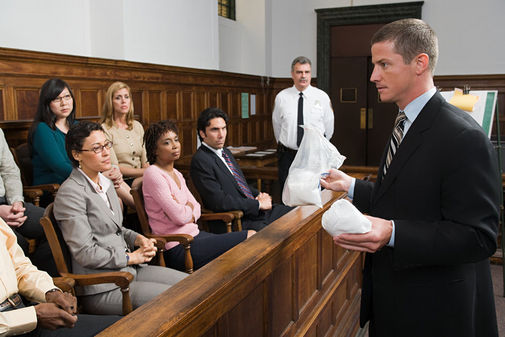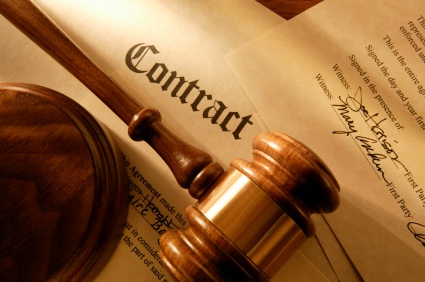Once in a while every person needs some legal advice from a lawyer, whether the matter is quite unpleasant and unfortunate or if you’re just willing to arrange your business actions and problems. You’ll need to understand and apply law provisions correctly, gather all necessary documents and papers, look through court precedents considering your personal matter and gather all evidence and proof.
The law system is quite complicated and multi-level. Federal and state law, norms and regulations of legal acts and case law are so intertwined and intricate; the amount of information is so humongous that an unprofessional person will spend hours and days trying to see into it and figure out its meaning. And, I’m not even saying about the correct understanding of which norms may be applied to the particular case and how exactly they may regulate it. Besides, it takes so much time to visit all necessary institutions and people to collect different papers, gather evidence and organize the proving base.
But, even this is not enough. It’s necessary to use all that information wisely, build a strategy and know how to present your interests in court the way that the jurors and judge take your arguments into the consideration and decide the case in your favor.
If you need to draw up and legalize some documents, they have to be done perfectly and according to the law in order to be valid.

So, it’s better to find a professional, who may figure all that out, do necessary research and either compose all the documents you need (a will, a deed of gift, a contract of sale or some business agreement). He’ll prepare an important deal, tackle custody issues, settle the issue in the pretrial order, speak at your side in court. At least, you need to get some advice from a person, who has proper education and enough experience to study your case thoroughly, estimate your chances for success and be able to protect your interests even if those chances are quite low.
And now, ladies and gentlemen, the question you actually wanted to be answered. How can you find a good and reliable lawyer to handle your situation? Here are 4 stages you have to go through to reach this goal and have someone to cover for you in legal matters.
Where and how to search for candidates
You have to make sure that your lawyer is a reliable and professional person who can handle your case and has a legal permission to provide his services.
You’re lucky if you know a lawyer, who is acquainted with the type of cases or legal activities you need to be solved and is available at the moment. But that is rarely a case. Either you don’t have a friend, who’s a lawyer, or if you do, he may not always specialize in some spheres or have no free time in his schedule to take another client.
You may ask your family, friends or neighbors if they know someone who works in legal field and may be available right now. If those people appear to be unable to work for you, then you may ask them for some recommendations. Lawyers communicate between each other and know if some of their colleagues may take the responsibility and help you out.
Check out your local Bar association to receive a consultation and free legal information about your case. Ask them, if there are any lawyers they’re aware of and whose specialty is the one you’re looking for.

Also, there should be a referral service in your town. It may provide information about lawyers that may suit your case and do the job of finding potential candidates, their contacts and references for you.
Another option is great for those, who don’t really have time or desire to visit various institutions and want to look through as many candidates as they can sparing the least possible time. It involves using online websites and services. HireRush.com is a perfect one, as it has gathered the ads of lawyers, who’re engaged in different legal practices and are ready to provide their cervices in your local area at a decent price.
So, you may consider the information candidates provide about themselves and make them several calls to decide if you want to continue your further communication with a hiring possibility. And, all that is without leaving your house or office.
Warning! Think twice (or better 10 times) before entrusting your problems or business activities to people, who come up to you after you got into trouble (like if you just had a car crash or was injured badly and are staying at the hospital) and offer you their services. They may be not too good in their job or work illegal. Either way, you don’t want to rely on them. 
What kind of lawyer should you look for?
Although you may hire a general lawyer, there is a great possibility that he doesn’t have enough knowledge in this or that definite law section and didn’t have too much experience in it. Of course, he’s mastered all principles and methods of legal practice and he will be able to figure out your case. But it’s much better to find someone, who deals only with similar to your problems, which are his main specialty. This way, you’ll appear with a really qualified in one narrow section of law professional, who’s able to provide better and detailed advice and stand your grounds much more effectively than general lawyer. You may search for various legal specialty associations or groups. They provide general legal information concerning their subject and gather contacts of their attorney members, describing their experience and percentage of the successfully handled cases.
Nevertheless, general lawyers are preferable if you have to face a complex situation, which potentially involves different spheres of law or if you’re looking for a permanent lawyer you may address to concerning various questions and cases, which might arise at work or your personal life in the long run.
Things you should know about candidates
As you have scrolled through the ads, published in category of Office Services on HireRush.com or selected several prospect candidates, you may invite them for an interview. You probably don’t want to skip this step, as no recommendations and resumes will be able to replace live communication between you two. At this point, you should find out such information about a candidate:
- His education
- Specialization and working experience
- License and ability to execute this or that kind of legal actions. There’re several permissions to perform some of them even professional lawyers have to get.
- Check the validity of his license throughout some professional lawyer associations and online services.
- Percentage of successfully resolved cases
- How many times he had to do similar work if your issue is not connected with trial proceedings
- References from his previous clients
- How many clients he has right now and if he’s going to be able to work on your case along with the ones he already has
- If he had any cases of liability ( in other words, if he was ever disciplined by the State Bar’s association)
- If he’ll tackle the case himself or if he’s going to involve his paralegal. In the last case you’ll have to meet the latter one as well.

It’s also necessary to get the estimates of the fees (plus additional payments). Ask how long it might possibly take to resolve the case or prepare necessary documents (depending on what you want your lawyer to do for you). A qualified and experienced professional won’t guarantee any results, as even judge doesn’t know which decision he’s going to make before the trial ends. But it’s possible to predict the chances of positive and negative solutions after meticulous examination of information provided by a client and reviewing the statistics of court verdicts on similar cases.
A highly professional attorney will ask you numerous questions and consider all evidence you’re able to hand him over right now before making any predictions and composing a draft strategy. It’s mandatory to answer those questions honestly and openly, without concealing any information. As even the smallest detail you didn’t pay attention to may play a huge role in your case.
A skilled and reliable lawyer won’t say anything about the exact costs and deadlines before doing some research on his own.
The human connection, level of trust and understanding between you and lawyer has to be one of the key factors that should influence your final decision. You can’t be opened with a person? You’re not sure if he’s going to do the job the way you want him to? You’re just uncomfortable around him, despite all his qualifications and respectability? Then it’s better to move on to the next candidate.
The most important arrangements
When y ou’ve chosen a perfect candidate and talked about the case you’re both working on now, you should probably handle the most annoying stuff. But if this doesn’t work out the way both sides agree on, the whole hiring process you’ve done before will be worthless. You’ll have to start over.
ou’ve chosen a perfect candidate and talked about the case you’re both working on now, you should probably handle the most annoying stuff. But if this doesn’t work out the way both sides agree on, the whole hiring process you’ve done before will be worthless. You’ll have to start over.
Lawyer’s obligations
Carrying out an investigation, representing client at court, doing all paperwork, paying the dues, talking to witnesses, processing and executing documents and doing research, connected with your problem, are not all obligations the lawyers can take on themselves. But, of course, the more tasks you give your lawyer, the more he’ll charge you, but the better his services will be.
Fee agreement
It’s better to do everything in writing. Most of the lawyers compose a fee agreement themselves and always offer their clients to sign it before proceeding to any further actions. But if your lawyer doesn’t do that, just ask him to. This way you’ll be secured and won’t be surprised when a check for his services comes. There’re several fee systems, so I’ll give you a simple guideline, so that you’re able to understand how much and which way your lawyer charges:

- Hourly fee – simple and easy at the first sight, but really tricky one, as you rarely can tell for sure how much time a lawyer will work on your issue
- Contingency fee – basically, a lawyer gets a set percentage from what you’re getting after the court’s decision enters into force. It’s important to determine how much a lawyer is going to get depending on how much you’ll receive as damages or other awards according to the verdict. Set percent rates for several sum ranges, as the court might not give you everything you ask for in your lawsuit.
- Standard fixed fee – is usually charged for kind of simple and routine cases like divorce or making a draft will. It’s also common for some other legal actions, like consultation during some business meetings or buying a property and asking for lawyers’ opinion on legal stuff and making him do the paperwork.
- Statutory fee – the one, prescribed by law.
- Retainer fee – presumes additional payment for your ability to call a lawyer whenever you need to and get immediate help. In some cases, it also means that your lawyer is going to concentrate mainly on you as on his principal client and will turn down any applications for his services to stay available for you. The cost of legal support in this case is higher, but this option is perfect for clients who need it constantly and urgently.
Hidden fees
Additional costs may include lawyer’s needs during the investigation process, expert and jury fees, costs of some services (like mailing), filing fee, staff’s wage (lawyer’s secretary, paralegal), notary services, payments for witnesses and traveling expenses
Payment procedure
If you can’t pay the sum your attorney charged you with at once, you may reach an agreement, according to which you’ll able to pay him gradually.





